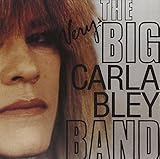Andando El Tiempo
Appliances
Arts, Crafts & Sewing
Automotive
Baby
Beauty
Books
CDs & Vinyl
Collectibles & Fine Arts
Cell Phones & Accessories
Clothing, Shoes & Jewellery
Computers
Electronics
Health & Personal Care
Home & Kitchen
Industrial & Scientific
Luggage & Travel Gear
Musical Instruments
Office Products
Patio, Lawn & Garden
Pet Supplies
Software
Sports & Outdoors
Tools & Home Improvement
Toys
Video Games

![Escalator Over The Hill[2 CD]](https://m.media-amazon.com/images/I/51QNiLw2UVL._SL500_.jpg)
![Escalator Over The Hill[2 CD]](https://m.media-amazon.com/images/I/51w6UhQHKgL._SL75_.jpg)
![Escalator Over The Hill[2 CD]](https://m.media-amazon.com/images/I/51w6UhQHKgL.jpg)




![Sgt. Pepper's Lonely Hearts Club Band [4 CD/DVD/Blu-ray Combo][Super Deluxe Ed](https://m.media-amazon.com/images/I/61vwcOLe47L._SL160_.jpg)

![A Multitude Of Angels [4 CD]](https://m.media-amazon.com/images/I/31W-UfibQ7L._SL160_.jpg)
![Meat Light: The Uncle Meat Project/Object [3 CD]](https://m.media-amazon.com/images/I/61CRl8H4icL._SL160_.jpg)


